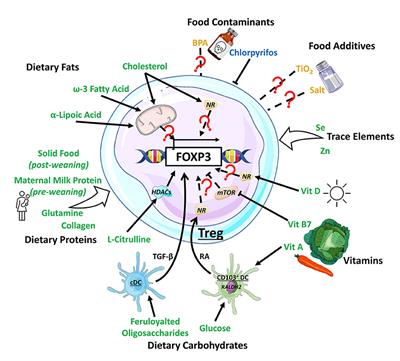
There are three types of prevention for cardiovascular disease: primal, secondary, or primordial. Each consists of the same elements, but their starting points and effects differ. Patients need to know their risk factors in order to develop a personalized prevention plan. It is important to reduce your chances of having heart disease and live a long, healthy life. Here are some tips to help prevent heart disease. This article discusses the treatment options and different types of heart disease.
Firstly, focus on a heart-friendly diet. A heart-friendly meal is one high in fiber and low in salt and rich in vitamins or minerals. Next is to stop eating processed foods like white bread and snacks. These foods are not heart-friendly unless they contain a high-fiber content, which is best for the body. You can also avoid processed snacks and fast food. Don't reach for the salt shaker. Too much sodium in the body is a risk factor for cardiovascular diseases.

You should eat healthy and exercise regularly. Most experts recommend 150 minutes of moderate exercise each week - about 20 minutes a day - and a variety of low-calorie foods. In addition, a regular exercise routine can help lower blood pressure and prevent heart disease. Practicing mindfulness and managing stress can also help prevent heart disease. It is possible to make lifestyle changes that are easier than you may think.
A healthy diet can lower your risk of heart diseases and decrease the severity of your heart attack. A diet rich in fruits and vegetables is a proven way to lower your chances of developing the disease. A diet high in beans and low-fat proteins may also reduce your chances of developing the disease. The omega-3 fatty oils found in certain fish may help to lower your risk of developing heart disease. These methods can be incorporated into your daily life if you have the time.
Smoking can increase your risk of developing heart disease. Smoking is a major risk factor for heart disease. It's best to stop smoking. You should stop smoking. You are better for your heart if you quit smoking. In addition, avoiding secondhand smoke will also reduce your risk of coronary artery disease. If you're a smoker, it's important to quit smoking. This will reduce your risk of heart disease.

It is important to take steps to prevent heart disease. Although it can be difficult to spot, heart disease can increase your risk of developing serious conditions such as heart failure. It is important to take steps to reduce the risks of heart disease. If you have healthy habits, your chances of developing this disease will be reduced. This way, you'll live a long and healthy life. The more you do this, the happier you will be.
FAQ
How to get rid of belly fat fast
There are many ways to quickly reduce belly fat. One option is to eat less calories and drink more water.
Another way to increase metabolism is to run and swim.
To quickly reduce belly fat, avoid sitting too much. Instead, stand up throughout the day. This will allow you to burn more calories.
If you've tried all the methods and are still struggling with belly fat, there's another option.
This is done by using a device called the belt. When you sit down, the belt tightens around your waist.
As a result you'll feel uncomfortable and will be more mobile. This encourages you to burn calories and decrease your belly fat.
Do Men Need A Gym Membership?
For men, a gym membership is not required. However, your money will be more valuable if you join a gym.
Many gyms offer free trial memberships that allow you to test the facilities before signing up for any monthly fees.
You can use the gym whenever you like, and it won't cost anything. It's easy to cancel your membership when you decide whether or not you love the gym.
How many calories do I need to eat each day?
This varies from person to person. An average person needs 2000-2500 calories per day. Based on your age, gender, height and activity level, you will need to calculate how many calories you require.
Statistics
- Candidates and applicants must pass all four tests at 70% (minimum level) to graduate from Basic Deputy U.S. Marshal (BDUSM) Training. (usmarshals.gov)
- According to the American Heart Association, blood pressure should be checked at least once every two years, beginning at age 20. (my.clevelandclinic.org)
- An estimated calorie range for moderately active adult males falls between 2,200 to 2,800 calories per day, depending on age. (eatright.org)
- According to the American Academy of Dermatology (AAD), men over 50 are at a heightened risk of developing it. (healthline.com)
- Are You One of the 20% of Guys (mh.co.za)
External Links
How To
What nutrients does a man need daily?
Healthy growth and development of men requires healthy nutrition. The body requires vitamins, minerals, proteins, carbohydrates, fats, water, fiber, and other essential elements.
Specific nutrients are also required by the male body at different times during the day. When you're sleeping, your body uses energy from food for hormones, proteins, and enzymes. Protein is needed to build muscles and repair tissue damaged when you wake up.
Your body will burn fat at night and store the extra energy as a form of glycogen. During this time, your body needs fewer calories but still needs sufficient nutrients. You can have a snack at night if you feel hungry.
Working out requires adequate carbohydrate and protein intake. Muscle soreness can occur if you work out hard.
To prevent this, you must consume carbs and protein within 2 hours of training. Your body will use stored glycogen to produce glucose for energy.
In addition, you must consume protein immediately after completing your workouts. This prevents the breakdown of muscle tissue that occurs while you sleep.
During periods of intense physical activity, your body produces lactic acid. The body produces lactic acid when there is too much activity. This can cause fatigue. Avoid this by eating foods rich in carbohydrates such as fruits or vegetables.
Carbohydrates offer your body the energy it needs for recovery from exercise.
In addition, you may want to include lean meats, fish, eggs, milk, cheese, yogurt, beans, nuts, and seeds into your diet.
All of these foods contain high quality protein. Protein promotes muscle growth, and helps repair damaged tissues. It also provides the amino acids your body needs to produce sex hormones and testosterone.
Good skin, hair, and joint health requires adequate dietary fats. Healthy men should consume between 20% to 35% of their daily caloric intake from fat.
Fat is good for your heart and helps you fight cancer. It keeps your brain healthy and functioning well.
Most of the fat you need can be obtained from vegetable oils, including sunflower oil (or soybean oil), peanut oil, peanut oil, soybean oil, and peanut oil.
These oils are high in monounsaturated fatty acids (MUFAs). MUFAs can lower cholesterol levels and reduce inflammation. They protect cells against damage from free radicals.
Saturated oils (SFAs), found primarily in animal products such meats, dairy products and butter, are known to raise LDL ("bad") cholesterol. SFAs increase LDL ("bad") cholesterol, and increase triglycerides. They promote weight gain as well as belly fat.
Polyunsaturated oil (PUFAs), which are plant-based, can be found in vegetable oils, nuts seeds, grains, and other plant-based products. PUFAs are good for your heart health and help to reduce inflammation. They are also good for controlling blood sugar and cholesterol.
Erectile dysfunction can often be a problem for men who have low HDL ("good") levels of cholesterol. A high intake of saturated fats leads to higher levels of bad cholesterol.
Red meat and pork are a common source of prostate problems in men who eat a lot. Nitrites convert to nitrosamines when cooked at high temperatures. These compounds can cause cancer.
Nitrites and other harmful chemicals are common in processed meats. You should avoid them.
The American Heart Association suggests that no more than two servings per week of red meat should be consumed. Instead, opt for poultry, fish, legumes and tofu as well as whole grains bread and cereals.